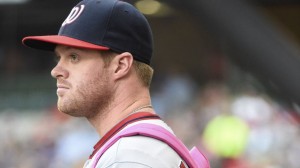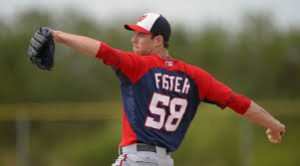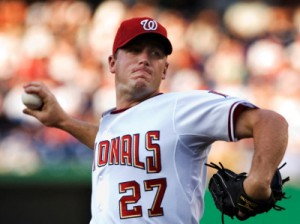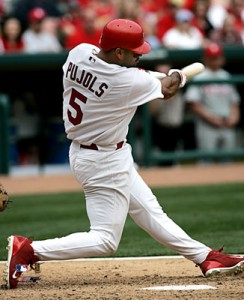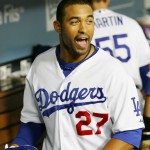An annual post done at the end of each season. Here’s 2013’s version.
Money can’t buy me love. And, in baseball, more and more we’re seeing that Money also can’t buy playoff spots. Of the ten teams that made the 2014 MLB playoffs, only half of them were among the top 10 spenders in terms of opening day payroll (payroll numbers courtesy of Spotrac.com). Here’s the full list:
| Team | SpotRac Opening Day Payroll | SpotRac Opening Day Rank | Final W/L | W/L Rank | Playoff Status | Payroll/Record Delta |
| Los Angeles Dodgers | $232,899,930 | 1 | 94-68 | 4 | NL West | -3 |
| New York Yankees | $194,460,757 | 2 | 84-78 | 13 | -11 | |
| Philadelphia Phillies | $177,729,966 | 3 | 73-89 | 22 | -19 | |
| Detroit Tigers | $163,285,500 | 4 | 90-72 | 5 | AL Central | -1 |
| Boston Red Sox | $155,912,125 | 5 | 71-91 | 25 | -20 | |
| San Francisco Giants | $148,589,474 | 6 | 88-74 | 8 | NL WC | -2 |
| Los Angeles Angels | $146,647,750 | 7 | 98-64 | 1 | AL West | 6 |
| Washington Nationals | $133,319,078 | 8 | 96-66 | 2 | NL East | 6 |
| Toronto Blue Jays | $133,070,557 | 9 | 83-79 | 14 | -5 | |
| Texas Rangers | $131,657,214 | 10 | 67-95 | 28 | -18 | |
| St. Louis Cardinals | $112,768,000 | 11 | 90-72 | 5 | NL Central | 6 |
| Atlanta Braves | $112,658,731 | 12 | 79-83 | 16 | -4 | |
| Arizona Diamondbacks | $112,298,833 | 13 | 64-98 | 30 | -17 | |
| Cincinnati Reds | $111,694,938 | 14 | 76-86 | 21 | -7 | |
| Baltimore Orioles | $104,045,833 | 15 | 96-66 | 2 | AL East | 13 |
| Milwaukee Brewers | $103,397,967 | 16 | 82-80 | 15 | 1 | |
| New York Mets | $96,554,970 | 17 | 79-83 | 16 | 1 | |
| Colorado Rockies | $94,079,071 | 18 | 66-96 | 29 | -11 | |
| Seattle Mariners | $91,739,642 | 19 | 87-75 | 11 | 8 | |
| Kansas City Royals | $90,837,000 | 20 | 89-73 | 7 | AL WC | 13 |
| San Diego Padres | $90,361,600 | 21 | 77-85 | 18 | 3 | |
| Chicago White Sox | $89,792,166 | 22 | 73-89 | 22 | 0 | |
| Chicago Cubs | $89,046,356 | 23 | 73-89 | 22 | 1 | |
| Minnesota Twins | $85,465,000 | 24 | 70-92 | 26 | -2 | |
| Cleveland Indians | $84,809,134 | 25 | 85-77 | 12 | 13 | |
| Oakland Athletics | $80,360,900 | 26 | 88-74 | 8 | AL WC | 18 |
| Tampa Bay Rays | $76,746,916 | 27 | 77-85 | 18 | 9 | |
| Pittsburgh Pirates | $71,929,833 | 28 | 88-74 | 8 | NL WC | 20 |
| Houston Astros | $50,032,900 | 29 | 70-92 | 26 | 3 | |
| Miami Marlins | $44,136,900 | 30 | 77-85 | 18 | 12 |
As you may have already surmised, the “delta” column to the right quickly shows which teams were badly over or under performing their payroll ranks. Specifically:
- Boston, Philadelphia, and Texas are three obvious teams that badly underperformed their payroll. We’re all well aware of Philadelphia’s problems: too many long term contracts given out to guys in their 30s, locking that franchise into transactional inertia for the past few years. Texas suffered from injury problems that were beyond ridiculous; they ended the season with 10 players on the 60-day D/L, used 15 different starters and no less than *40* pitchers on the year. Fourty different pitchers! Texas started the year with $130M payroll and finished with a worse record than their in-state rivals Houston, who have been *not* trying for years.
- Arizona is a sneaky under performer, but also merits discussion. Ownership finally has admitted that the brain trust that has been running players out of town for 50 cents on the dollar for years because of “character” or “make-up” issues has, well, not worked (see Justin Upton, Trevor Bauer most famously, but also see the moves that jettisoned Tyler Skaggs, Ian Kennedy and Brandon McCarthy in the same vein). Gone are former GM Kevin Towers and the on-field managerial staff who has valued “grit” over “capabilities” for years, led by Kirk Gibson. However, now running the show in Arizona is a newbie GM Dave Stewart whose accomplishments during his brief front-office experience in Toronto were not exactly well thought of by his former staff-member Keith Law. Nonetheless; they’ll have the #1 overall pick in 2015 thanks to their ineptitude, and a chance to put some depth into a middling farm system.
- The three teams who have already replaced their GMs this off season (Colorado, Atlanta, Arizona) all were on the under-performing list. Colorado had the second worst record with a mid-sized payroll but has replaced its odd executive structure from within (which some pundits think will lead to more ineptitude). Arizona’s odd choices are discussed above. Atlanta’s GM switch is surprising to me (as i’ve mentioned before) and seems to be the result of an odd power-struggle going on within the Atlanta executive suite. How do you fire a guy who constructed a team that has gone to the playoffs three out of the last five years on a budget immediately following a season when he lost 3/5ths of his starting rotation to injury before the season began?
How about on the “good” side?
- Three of your four WC teams are among the smallest payrolls in the game. Oakland, Pittsburgh and Kansas City rank 26th, 28th and 20th in 2014 payroll. Also worth mentioning as overachievers are Cleveland (who missed out on the AL wild card by a game), Baltimore (who won 96 games with the 15th ranked payroll) and (of course) Miami (who sported the lowest payroll *by far* but still won 77 games). Miami in particular seems like it is ready for another boom and sell-off cycle; they have a good team without the services of its best pitcher nearly all year; one or two more acquisitions and/or successful call-ups could have Miami competing for a divisional title again, and soon.
- Washington Nationals: 8th highest payroll, 2nd best record. That’s certainly good news. Our opening day payroll of $133M may have been on the high side to some observers, but the team lived up to its reputation.
- The Angels bashed their way to the best record in the league on just the 7th highest payroll, ironically, considering the over-spending they’ve been accused of in the past few years. Don’t worry though; the Angels payroll will begin to have its own issues when Trout’s $30M/year contract years hit. $30M a year.
What happens next year?
- The Nats may be holding steady; LaRoche‘s $12M and Soriano‘s $14M salaries go away, but huge increases to Desmond and Zimmermann‘s salaries in 2015, stepped-up increases for Gonzalez and Span (who I’m assuming we’re going to exercise for 2015), and arbitration cases for a number of key and expensive players (Fister, Strasburg, Ramos, Clippard, Storen) will probably more than make up for the $26M coming off the books.
- The Phillies, to my constant amusement, already have $127M committed to just nine players for next year. They’ll continue to be a top payroll, bottom performer for at least two more years.
- The Yankees, who dipped underneath $200M for 2014 thanks to a gift-wrapped Bud Selig suspension for Alex Rodriguez and an equally generous $14M payoff from the cubs to take Alfonso Soriano off their hands, have $161M committed next year for just 10 players, with five of those players each earning north of $20M a year. Wow. Plus, they stand to lose their closer, two of their five SPs (Kuroda and McCarthy), and several position players to either FA or retirement. They could be a train wreck again next year.
